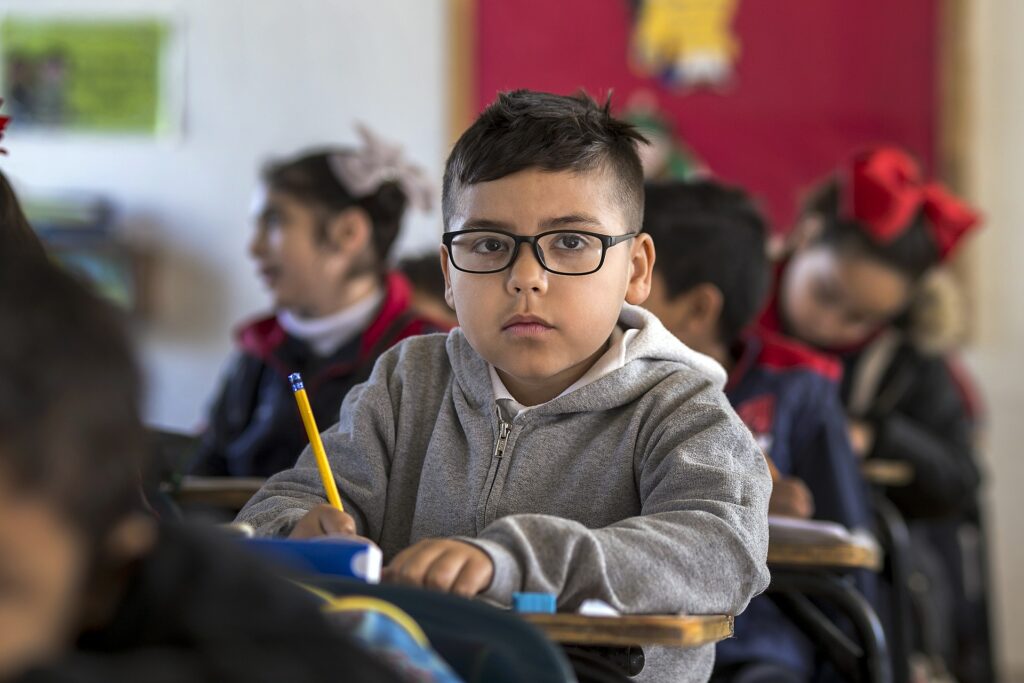Understanding the Impact of Trauma on Students and Parents

0%
A teacher can be a lifeline that helps students heal from their pain.
LIP
Trauma affects people of all ages. Though there is a belief that all children bounce back from negative experiences, that isn’t necessarily true. If not addressed correctly, children who experience traumatic situations and events can have lingering mental health. They may act out, behave badly and have trouble regulating their emotions. It may even mimic other issues such as ADHD.
As an educator, you should have received some training on how to spot trauma, and after years of working with children from all sorts of backgrounds, you probably have a sixth sense when there is an issue. But depending on the individual, trauma will manifest itself differently and it can have devastating consequences.
According to one study, more than two-thirds of children reported at least one traumatic event by 16 years, with 13.4% of those children developing post-traumatic stress symptoms. That number is even higher for refugee children and their parents, who have undergone or seen unimaginable horror situations.
Understanding the impact of trauma on a refugee will help you spot the red flags that a student or their parent isn’t coping correctly with their trauma.
By knowing which child is struggling, you can better address the situation.
Before implementing any techniques, however, you should talk to fellow teachers, your principal and your school board. They may have an official framework in place. If that is the case, follow their recommendations.
If they do not have a guide to help you, you can still implement trauma-informed learning techniques, of which the five guiding principles are safety, choice, collaboration, trustworthiness and empowerment.
This can include actions such as:
Building trauma awareness and learning about the impact of trauma on a child through personal research;
Building trust by creating a welcoming and supportive environment;
Developing positive relationships with children and their families; and
Fostering opportunities that will give the child more choice, collaboration and empowerment.
Helping children
Children with trauma often have problems regulating their bodies and emotional responses. They may feel stressed while in the classroom, unable to leave behind what they’ve experienced. They may even experience incidents such as panic attacks while in the classroom.
When the stress and anxiety become too much, teachers can help these kids through breathing exercises. You can ask them to blow up a make-believe balloon.
It is a fun pretend game where they imagine holding a balloon that they then fill by blowing. This helps them regulate their breathing as it will become slow, long and steady. They also find it silly, and laughter is great for destressing.
Sometimes sitting quietly can be difficult for all children, not just those with mental health issues. Think about incorporating movement into your day.
For example, having a heavy conversation while walking around the schoolyard can help them open up and accept your message and banging on a drum while in math class will keep them focused and learning.
At a loss? You can ask point-blank the child what you can do to help. Though kids may not know how to articulate their distress, they usually know what they need to feel better.
And always make sure you give them compliments when they do great work. That positive reinforcement can help build resilience and confidence.
Creating positive spaces
When a child has undergone trauma involving adults, they may have difficulty reaching out for support or help from their teacher. To them, you are merely another stranger that may harm them. They may act out, which will lead to punishment and further mistrust.
These children need to understand that you are there for them and empathize with them.
Small actions can have the biggest impact. A welcoming smile, a high-five, asking if they want a hug, singing their favourite song, taking the time to ask them how they feel and giving them compliments may not feel like much, but it creates positive associations and makes them feel safe.
If they need a space to decompress, provide it to them. If they need to stretch, let them. If they want a hug, and you are comfortable with touch, give one.
Focus on positive interactions that help them understand that you are there for them. This message should be clear to the parents as well. Make sure they know that you are an ally.
All teachers want to positively impact their students, which is even more true when it comes to a child with trauma. A teacher can be that lifeline that helps them integrate into society and heal from their pain.
Working with the parents
If the parents have undergone similar trauma, they may have trouble connecting or behaving in a way you understand. They may want to be there for their child but not know-how. Even if they are trauma-free, they may be from a culture where schooling is very different. They may believe that there is no need to meet with the teacher.
Make sure to reach out to them. Have a friendly conversation and clarify what expectations you have of them. If you have some available, offer up resources to help them navigate the school system.
Just remember that traumatized children aren’t trying to be bad. They are just dealing with difficult issues and aren’t sure how to express themselves.



